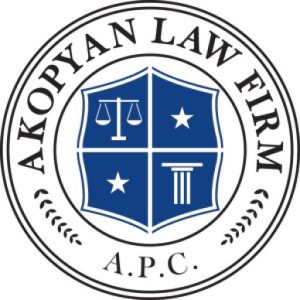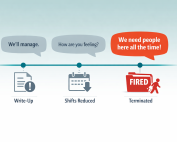San Marcos Employment Law Attorneys
Employment Litigation in San Marcos, California
San Marcos located in San Diego County. It sits in the heart of North County, about thirty-five miles north of downtown San Diego. Once known primarily for its ranches and farmland, it has grown into a thriving city that blends residential neighborhoods, higher education, and a strong business community. With a population of more than 90,000 residents, San Marcos has become one of the region’s most dynamic and well-balanced communities.
 The city’s history dates back to the late 1800s, when German settlers established homesteads in the area and named it after the nearby mission valley, Rancho San Marcos. For decades, it remained an agricultural town known for dairy farming and avocado groves. San Marcos incorporated in 1963, and since then has experienced steady growth, bolstered by the establishment of California State University San Marcos and a broad range of businesses. Today, the city’s economy spans education, healthcare, technology, construction, retail, and hospitality.
The city’s history dates back to the late 1800s, when German settlers established homesteads in the area and named it after the nearby mission valley, Rancho San Marcos. For decades, it remained an agricultural town known for dairy farming and avocado groves. San Marcos incorporated in 1963, and since then has experienced steady growth, bolstered by the establishment of California State University San Marcos and a broad range of businesses. Today, the city’s economy spans education, healthcare, technology, construction, retail, and hospitality.
Akopyan Law Firm, A.P.C. represents employees and employers in San Marcos in all forms of employment litigation. Our attorneys practice exclusively in employment law and bring extensive trial experience to every case we handle.
Employment Law in San Marcos
San Marcos’s workforce reflects its variety — university educators, healthcare professionals, service workers, tradespeople, and entrepreneurs all contribute to the city’s success. With such diversity comes an equally wide range of employment relationships governed by California’s detailed labor laws. When disagreements over workplace treatment, compensation, or termination arise, litigation may become necessary to protect one’s rights or defend against claims.
Akopyan Law Firm handles lawsuits involving wrongful termination, discrimination, harassment, retaliation, and wage-and-hour disputes. We represent both employees and employers and approach each case with careful preparation, strategic insight, and determined advocacy.
Representation for San Marcos Employees
Employees in San Marcos play a vital role in the city’s growing economy, and when their workplace rights are violated, they deserve experienced representation. Akopyan Law Firm stands up for workers who have faced wrongful termination, discrimination, harassment, retaliation, or wage violations.
Our attorneys understand that employment disputes often affect more than a paycheck — they can impact a person’s sense of security and professional reputation. We bring skill, persistence, and focus to every case, guiding clients through litigation with the goal of achieving meaningful results.
Litigation for San Marcos Employers
San Marcos’s employers range from local startups to regional companies employing hundreds. Even in the best-run organizations, employment disputes can arise. Defending against these claims requires both legal knowledge and courtroom experience.
Akopyan Law Firm represents employers in employment litigation across San Marcos and the greater North County area. We handle cases involving wrongful termination, discrimination, harassment, retaliation, and wage-and-hour matters. Our attorneys provide thorough, strategic representation aimed at resolving disputes efficiently and effectively.
San Marcos’s Community and Workforce
San Marcos combines a strong educational foundation with ongoing economic expansion. The presence of Cal State San Marcos and Palomar College supports a highly skilled labor force, while the city’s business parks and commercial corridors continue to attract new industries. Despite its rapid development, San Marcos retains its community-focused atmosphere, with a workforce that values opportunity, collaboration, and progress.
Akopyan Law Firm understands the evolving nature of employment in San Marcos and offers litigation services tailored to the realities of the city’s workforce. Our attorneys provide the experience and advocacy needed to navigate complex employment disputes with confidence.
Contact Akopyan Law Firm, A.P.C.
If you are an employee or employer in San Marcos dealing with an employment law dispute, Akopyan Law Firm can help. Our practice is dedicated solely to employment litigation, and our attorneys have successfully represented clients throughout Southern California.
To discuss your case or schedule a confidential consultation, contact Akopyan Law Firm, A.P.C. today. Our team is committed to providing experienced advocacy and pursuing strong outcomes in every employment law matter we handle.
We Can Help San Marcos Residents With Cases Involving:
Featured Article:
Hostile Work Environment Allegations, Job-Protected Leave (FMLA/CFRA), and Wrongful Termination: How These Issues Can Overlap in California
📌 Key Takeaways When workplace hostility, job-protected family or medical leave (FMLA/CFRA), if eligible, and termination cluster in time, the sequence may raise concerns under California and federal employment laws that require a fact-specific review. Hostile Work Environment Standard: A hostile work environment claim typically turns on whether harassment was sufficiently severe or pervasive and tied to a protected characteristic (for example, disability), not merely a single workplace conflict or “rough” supervision. Job-Protected Leave: Employers generally may not retaliate against an employee for requesting, asking about, or taking job-protected leave under the FMLA or CFRA (if eligible), and generally may not interfere with the exercise of those rights. Timing + Adverse Action: If an employer’s negative comments, disciplinary write-ups, schedule cuts, or termination closely follow a job-protected leave request, leave use, or return from leave, the sequence may support a retaliation or interference theory depending on the facts. Disability-Related Overlap: Retaliation, disability discrimination, failure to accommodate, and wrongful termination can overlap where adverse treatment escalates after an employee discloses a medical condition, requests accommodation, or complains about discrimination or harassment. Documentation Matters: Claim evaluation can hinge on the timeline, decision-makers, and wording in disciplinary records, internal communications, and termination paperwork—making attorney review especially important in close cases. In many cases, the timing of events and the content of written documentation drive how potential claims are evaluated. ~ ~ ~ ~ ~ ~ ~ ~ ~ ~ ~ ~ ~ ~ ~ ~ ~ ~ Workplace issues can overlap. An employee may experience escalating hostility at work, request or take job-protected leave for a serious health condition (or to care for a family member) and then face discipline or termination soon after. When adverse action follows protected leave activity or disability-related disclosures, the sequence may raise concerns under California and federal employment laws, depending on the facts. When a Difficult Workplace May Become a Hostile Work Environment In California, a hostile work environment claim generally focuses on whether harassment was severe or pervasive and because of a protected characteristic (for example, disability), such that it altered the conditions of employment. A difficult manager, isolated conflict, or unfair criticism may be a workplace problem without meeting the legal threshold for a hostile work environment claim. Examples that may point toward hostile work environment dynamics include but are not limited to: A supervisor repeatedly uses insults or mocking comments tied to an employee’s disability, medical needs, or need for time off. After an employee discloses a medical condition or requests leave or accommodation, the supervisor escalates disciplinary write-ups, isolates the employee, or humiliates the employee in front of others. Coworkers repeatedly make demeaning comments about an employee “always being out,” and the employee reports it to a supervisor or HR, but the employer does not take reasonable corrective steps. Hypothetical example: An employee discloses a qualifying medical condition and mentions upcoming treatment. After the disclosure, the supervisor increases scrutiny and assigns more undesirable tasks, and the employer then terminates the employee after... Read more
Termination After Accommodation or CFRA/FMLA Leave Requests in California: An Overview
📌 Key Takeaways A termination soon after a request for reasonable accommodation or a request for job-protected CFRA/FMLA leave may warrant legal scrutiny because timing can implicate statutory duties and prohibitions. Timing alone rarely establishes an unlawful employment practice. Attorneys typically evaluate timing together with documents, communications, and the employer’s stated reasons. Common indicators reviewed in practice include temporal proximity, inconsistent rationale, interactive-process breakdown, request-linked hostility, and potential interference with leave rights. Because these issues are fact-specific, a qualified California employment attorney typically reviews the sequence, the record, and the applicable statutes. A termination that occurs soon after an employee requests reasonable accommodation or requests job-protected CFRA or FMLA leave can create a timeline that attorneys often scrutinize. Timing alone does not establish a violation of the law, but it may raise questions about whether statutory duties were met and whether protected rights played a role in the decision. ~ ~ ~ ~ ~ ~ ~ ~ ~ ~ ~ ~ ~ ~ ~ ~ ~ ~ Under California law, the Fair Employment and Housing Act (FEHA) addresses reasonable accommodation, undue hardship, and an employer’s duty to engage in a timely, good-faith interactive process. [Cal. Gov. Code § 12940(m) and Cal. Gov. Code § 12940(n)] Under federal law, the Americans with Disabilities Act (ADA) addresses reasonable accommodation and undue hardship and often provides baseline language used as context in California disputes. 42 U.S.C. § 12112(b)(5)(A). Definitions: Reasonable accommodation refers to a modification or adjustment that enables a qualified employee with a disability to perform essential job functions, absent undue hardship. Undue hardship refers to significant difficulty or expense under the applicable legal standard, assessed case-by-case. Interactive process refers to a timely, good-faith dialogue between employer and employee to identify effective reasonable accommodations. Adverse employment action refers to an action that negatively affects the terms or conditions of employment, including termination. When a termination follows an accommodation request, attorneys often examine whether the employer engaged in the interactive process and whether the employer’s stated rationale is consistent with the record. CFRA and FMLA as Distinct Statutory Schemes That Can Overlap The California Family Rights Act (CFRA) is a California law, and the Family and Medical Leave Act (FMLA) is a federal law. In some circumstances, an employee’s leave may be covered by both laws, but the laws remain distinct. Under California law, CFRA addresses discharge or discrimination tied to the exercise of CFRA rights. [Cal. Gov. Code § 12945.2(k]. CFRA also addresses interference, restraint, or denial of CFRA rights. [Cal. Gov. Code § 12945.2(q)]. Under federal law, the FMLA includes prohibited-act language that uses an interference, restraint, or denial framework. 29 U.S.C. § 2615(a). The phrase “interference, restraint, or denial of rights” generally describes conduct the law may treat as improper when it prevents or chills job-protected leave rights under the applicable statute. When a termination follows a request for job-protected leave, attorneys often evaluate the sequence, the employer’s stated reasons, and whether the leave request (or leave status) appears... Read more
Comments from Supervisors About Family Medical Leave That May Support Concerns About Unlawful Retaliation
📌 Key Takeaways Supervisor remarks that frame an employee’s use of job-protected leave as a workplace problem, particularly when followed by discipline or termination, may be relevant when evaluating whether an adverse employment action was lawful. Comments Reframing “Reliability”: Statements that the workplace needs people “here all the time” may recharacterize job-protected leave-related absences as an “attendance” issue and may later be used to justify discipline or termination. Job Security Threats: Statements that a job may not be there after leave, or that management wants “more available” workers, can link job-protected leave to job loss and may support an inference that leave was viewed negatively. Pressure on Medical Time: Questions about treatment that shift into pressure to move appointments, return early, or limit time away, including comments that trivialize medical care, may discourage the use of job-protected leave. Comments and Job Actions: When new criticism, write-ups, or shift cuts appear soon after a request for job-protected leave and similarly situated coworkers who did not take leave are treated differently, the sequence may warrant review. Viewed together, what a supervisor in Southern California says about job-protected leave, and when those comments occur, can change how later discipline or termination is understood. ~ ~ ~ ~ ~ ~ ~ ~ ~ ~ ~ ~ ~ ~ ~ ~ ~ ~ Supervisor comments about family medical leave can help show whether an employer views job-protected leave as a protected workplace right or as a burden. When those remarks appear close in time to write-ups, schedule cuts, demotion, or termination, they may support concerns about retaliation or interference with protected leave rights, rather than a purely business-related decision. Why Supervisor Comments About Family Medical Leave Matter for Job Security For many hourly workers, the first warning sign about job security is a shift in how a supervisor talks about time away from work. When California Family Rights Act (CFRA) and/or the federal Family and Medical Leave Act (FMLA) or related laws apply, employers are prohibited from retaliating against employees for requesting or using job-protected leave. That is why patterns in how supervisors discuss leave can become significant when later job decisions are described as “attendance” or “performance” issues. Workers Most Affected by Problematic Leave-Related Comments These concerns may arise for workers across many roles in Southern California communities such as Los Angeles, Bakersfield, Costa Mesa, and San Diego. Construction laborers, warehouse staff, production workers, retail associates, food service workers, landscaping crews, and delivery drivers may request job-protected leave for serious health conditions or caregiving needs and then face new scrutiny, reduced hours, or termination. Comment Patterns That May Signal Retaliation for Job-Protected Family Medical Leave Certain recurring ways of talking about job-protected leave can raise concerns, especially when the comments appear alongside discipline, demotion, schedule cuts, or termination after an employee requests or uses job-protected leave. Comments Linking Family Medical Leave to “Reliability” or “Commitment” Supervisors may say the workplace needs people who are “here all the time,” or that medical visits make... Read more
Unlawful Termination After Requesting Time Off to Care for a Seriously Ill Family Member in California
📌 Key Takeaways Close timing can matter. When an employer disciplines, reduces hours, changes schedules, or terminates an employee shortly after a request for job-protected family-care leave, the sequence of events may be relevant in a retaliation or interference analysis. Compare “before” and “after.” A shift from stable performance feedback to sudden criticism, write-ups, or schedule changes after a leave request can be an important pattern to document. Employer reasons should be evaluated against the record. “Restructuring,” “performance issues,” or “minor mistakes” may be legitimate in some situations, but a lawyer will often assess whether those explanations are consistent, documented, and applied evenly. More than one law can apply. Depending on eligibility and the facts, job-protected family and medical leave protections and anti-retaliation rules may overlap. Details and documents help. In an initial consultation, an employment lawyer will typically focus on the timeline, written communications, schedule records, and supervisor statements to assess potential claims. ~ ~ ~ ~ ~ ~ ~ ~ ~ ~ ~ ~ ~ ~ ~ ~ ~ ~ When an employee in California loses a job soon after requesting time off to care for a seriously ill family member, that timing may raise questions about whether the employer acted unlawfully. In many cases, the key issues are what was requested, whether the request involved job-protected leave, what changed afterward, and how the employer explains the termination or other adverse actions. When A Request for Family-Care Leave is Followed by Job Loss Consider two examples: Example 1: An employee in a warehouse role requests several days off to help a spouse through serious surgery. After the request, the employee’s schedule changes, disciplinary write-ups begin, and the employer terminates the employee. Example 2: A grocery employee requests time off to care for a seriously ill parent. Soon afterward, a supervisor starts focusing on minor issues that previously drew no attention, and the employee is told the position is no longer available. These examples do not prove wrongdoing by themselves. But when termination (or other significant employment actions) closely follows a request for job-protected family medical leave, the timing and pattern can become relevant facts in evaluating possible retaliation, interference with protected leave, or other unlawful conduct. Employees In Hourly and Schedule-Dependent Jobs May Feel the Impact Most Immediately A sudden termination can be especially disruptive for employees in hourly, schedule-dependent, or frontline roles (for example, warehouse, retail, delivery, restaurant, manufacturing, and similar jobs). Job loss in these circumstances often creates: Immediate loss of income needed for housing, food, transportation, and basic expenses. Added strain when the same paycheck supports a seriously ill family member’s care. Limited ability to absorb missed paychecks, particularly for employees living paycheck to paycheck. It is also common for employees to feel unsure how to describe what happened or to assume the situation is “just unfair.” A clearer approach is to focus on the sequence of events, the employer’s actions, and what was said or documented. Red Flags to Document Before and After... Read more









Millions of Dollars Recovered For Our Clients
Check Out Our Case Results






